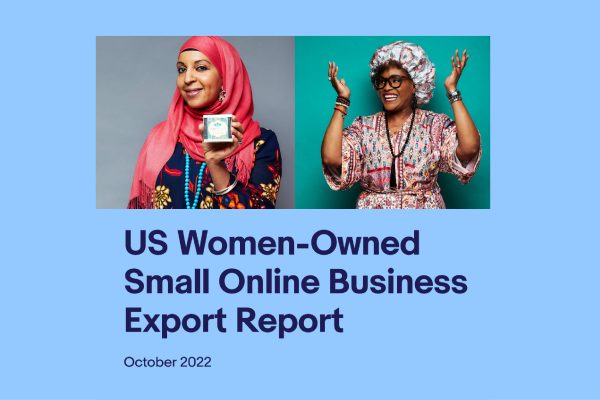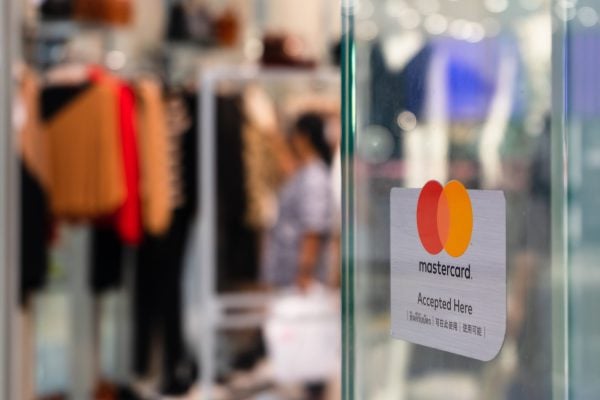I’ve been following the US proposed tax changes with interest but I’m no expert. Today the finance guys at Ezbob tell us everything we need to know about the proposed tax changes for out of State sales and how they’ll affect retailers operating in the USA.
Over the past few years, brick-and-mortar retailers have been lobbying for the US government to counter the unfair tax advantage online retailers have as a result of not always collecting sales tax. And just this month the US Senate approved the Marketplace Fairness Act (MFA) by a vote of 69 to 27.
The internet sales tax bill will now head to the House of Representatives, and if it’s approved tax-free online shopping in the US as we know it will end, with online retailers being required to collect sales tax on products that are sold in states other than the ones they have a presence in.
While the ecommerce sales tax doesn’t have any direct impact on UK retailers, the fact small online businesses are being targeted by government is a worrying sign of things to come. How the British government could squeeze small business owners remains to be seen, but it’s clear that, in the US at least, a problem collecting taxes from online retailers exist. If the act passes, e-retailers will invariably have to spend money on making sure their finances are in order and that they comply with the new legislation. That is sure to affect their bottom line and either force them to raise prices or shut up shop. As a result, UK-based small online businesses might reap the rewards by being able to undercut their US competitors.
For and Against the Bill
Supporters of the bill claim that online and out-of-state companies need to be put on a level playing field with high street retailers. The MFA would make that happen by enabling states to collects sales taxes they are owed from online retailers – who at present are not required to collect sales tax owed on the products they sell. In addition to President Obama and Republicans such as John McCain, brick-and-mortar retailers such as Walmart are in favor of the act. Amazon is also an active proponent of the bill even though it was once a strong critic of online sales taxes and a staunch supporter of small business and financing.
Small online retailers are obviously against the bill, as is eBay who believes it will unfairly penalise its sellers. In fact, eBay CEO John Donahoe is urging its sellers to request that bill be amended. In its current form, remote sellers with less than $1 million in gross annual receipts from remote sales are exempt from the act. So if businesses aren’t making more than a million bucks in out-of-state sales, they won’t have to collect new taxes. The eBay chief wants congress to amend the bill in order to exempt small businesses with less than 50 employees or less than $10 million in out-of-state sales.
Is the MFA Fair?
That depends on who you ask. Commentators on the bill have questioned the distinction being made between brick-and-mortar and online businesses. At present both physical and web-based companies collect sales tax in the state where they have a store or where they are based. The new ecommerce sales tax bill would now force online businesses to collect sales tax in any state in which they make a sale. Brick-and-mortar businesses won’t have to. Some would argue the MFA is designed to discourage online businesses, tilting the playing field in the direction of physical stores.
Proponents of the bill say the MFA is not creating an additional tax, but simply applying the sales tax on goods sold online that are so often avoided by online retailers but that B&M merchants have always paid. As online merchants with less than a million-dollar turnover won’t be affected and online giants such as Amazon will be able to absorb any problems it may create, it appears mid-sized small business and financing companies will be most impacted.
Consider that if the burden of collecting tax is passed to online retailers, they will have over 9,600 tax-collecting jurisdictions to deal with. States will have to simplify their tax codes as well as provide remote sellers with free software that will calculate the taxes due at the end of each transaction and file returns. If the government introduces uniformed, intuitive software, the integration process should run smoothly. However, if each of the 45 states that collect sales tax decide to use unique software, online retail owners will be faced with a logistical nightmare, and will almost certainly have to hire a consultant to handle it.
What Happens Now?
Although the senate passed the ecommerce sales tax bill, it must now pass through the House of Representatives where it will face a tough ride. Anti-tax Republicans are in the majority, and almost every single one of them have signed up to Grover Norquist’s “Taxpayer Protection Pledge,” which opposes increases in marginal income tax rates for businesses and individuals.
Even though the legislation can be seen as the reapplication of taxes rescinded in the 1998 Internet Tax Freedom Act by President Clinton, members of the House will still look upon the elimination of a tax loophole as a tax rise. Therefore, it appears unlikely online retailers will have to start concerning themselves with the impact of having to pay state taxes on all sales made any time soon.










2 Responses
Good article. But the above is not true. The Internet Tax Freedom Act only covered internet specific taxes like taxes on your ISP. Before this was passed several states and cities were adding several dollars worth of tax per month on your bill. I think my dad was paying around $5 in taxes on a $20 bill. This made internet access more expensive and slowed adoption. Sales and Use tax has always been mandatory but now we are seeing the responsibility shift from the consumer (someone who isn’t going to voluntarily pay and might not even be aware they are legally required to pay) to the merchant who can be easily audited.
https://www.salestaxinstitute.com/Sales_Tax_FAQs/Internet_Tax_Freedom_Act_ITFA_ban_sales_taxes
What ebuyerfb says PLUS
1. It is $1 million gross, not net. It is entirely possible for an online business to gross $1M and net $10K. Remember Glacier Bay?
2. The Norquist Anti-Tax crowd are in no way opposed to sales taxes, in fact they love them and want to raise them where they can as an alternative revenue source to income tax. See Louisiana: https://www.reuters.com/article/2013/04/07/us-usa-politics-jindal-idUSBRE93604I20130407
Sales tax is touted as being ‘more fair’ because it is essentially a consumption tax. Opponents say that means it falls more heavily on low income earners who have to spend every cent just making it from paycheck to paycheck but do not earn enough to have Income Tax liability.
3. Amazon is itself a retailer. Unlike eBay, Amazon collects payment and remits to 3rd party sellers. Additionally Amazon has distribution centers in multiple states which constitute nexus. It charges 3% to collect sales tax. The motivation is clear.
4. You mentioned 9600 jurisdictions but that is only the beginning of the nightmare. There are local taxing jurisdictions; cities, counties, special purpose districts, school districts and transit authorities. They all have different reporting periods, forms, rates and definitions of what is taxable.
Some exempt shipping, others do not. Various states exempt some or all services, prescriptions, food, clothing for children under 12 or school related items. Some exempt certain kinds of manufacturers buying materials or Retailers purchasing for resale.
5. Free software is not always free to use in a usable or functional form. We are talking about legislators who think the internet is a collection of tubes and wind farms use up all the winds so how will folks stay cool in summertime. No kidding, look it up. Do you think they know the difference between a database and a program?
6. Find your buyer:
Even the USPS address database is not 100%. An example, my farm in California has both a legal physical address and a USPS assigned address. The legal address is 3 miles outside town limits but on the USPS database it is in town. Google maps do not recognize the USPS address, at all. I am sure we are not unique. We are continually flagged as fraud risk online & have been trying to fix this for 2-1/2 years.
7. Rural families who have no home delivery but use PO Boxes will pay at the rate of the Post Office location.
8. Additionally many taxing localities have no online presence or capability of receiving online payment. Others charge a ‘courtesy fee’ for it, mine is $7.50 per transaction. I pay my state and local tax on paper forms with a check and stamp.
In summary:
This is the thin end of the wedge. As states realize this is not nearly as profitable as they think, the limits will go down and the audits will go up. It will make no difference to Target, WalMart, Sears etc. Chinese sellers will thrive.